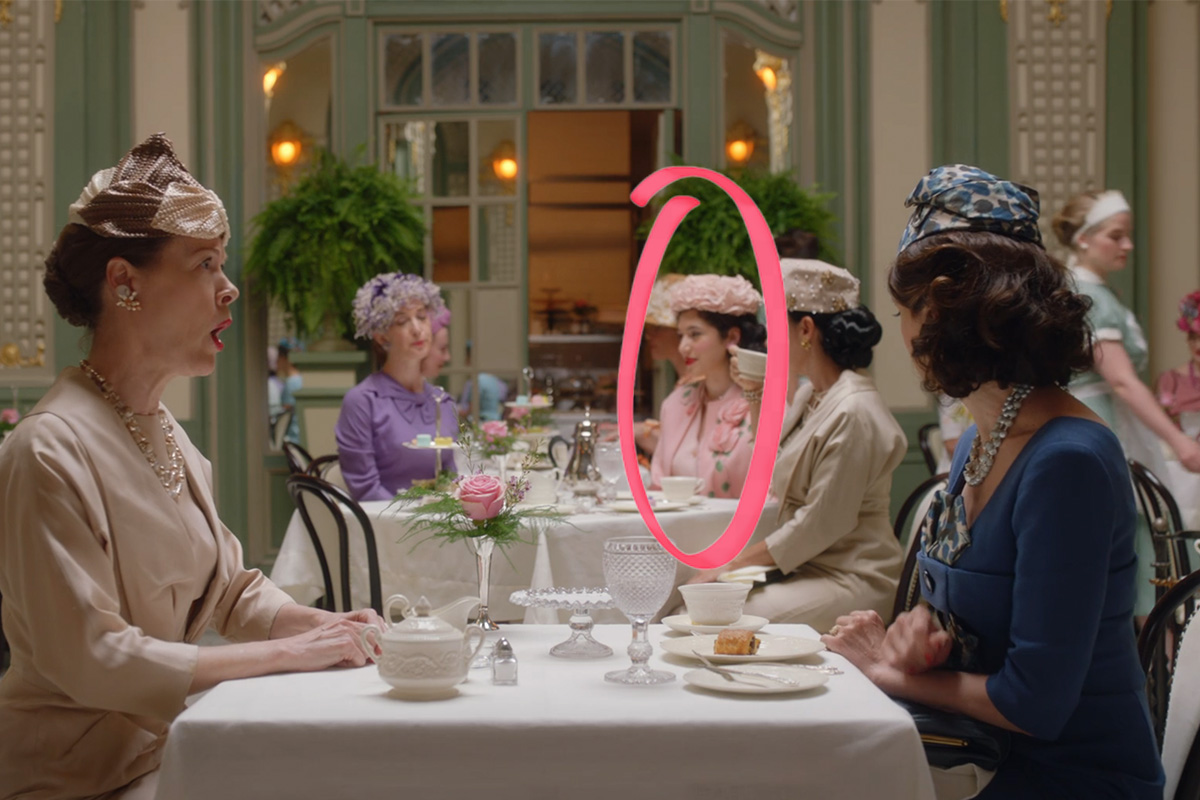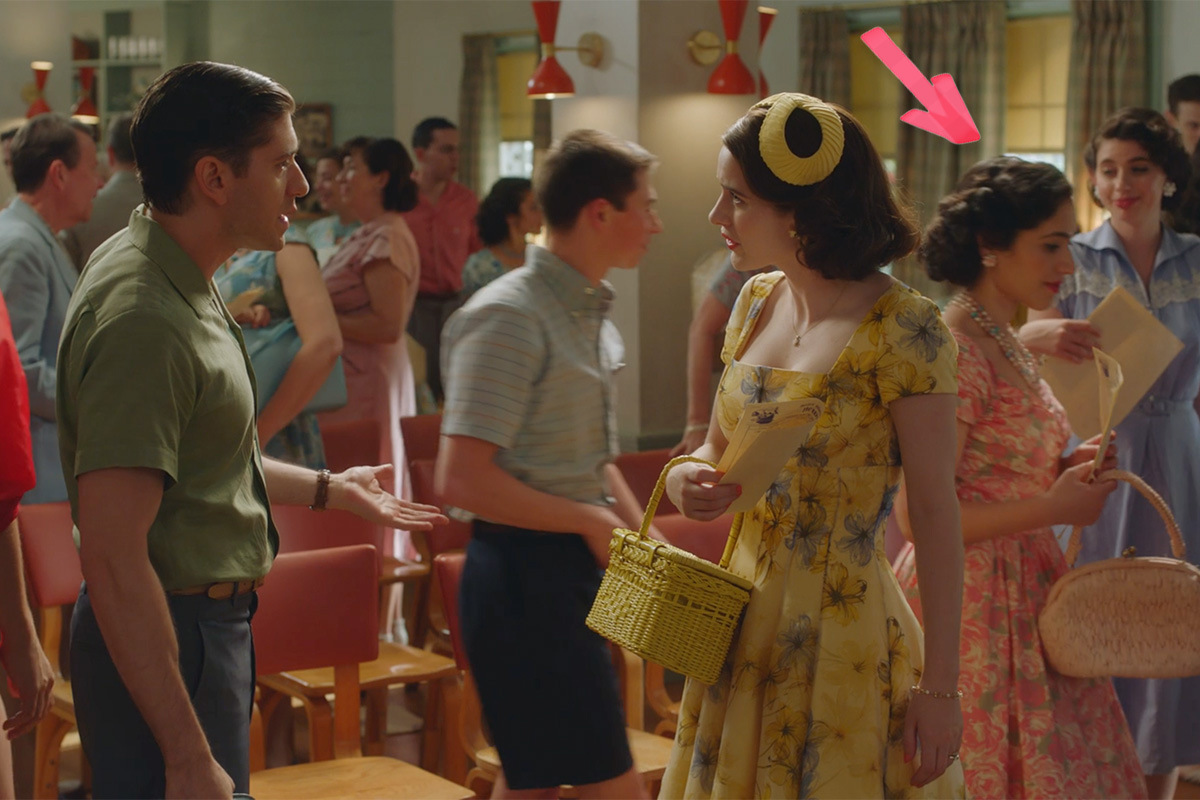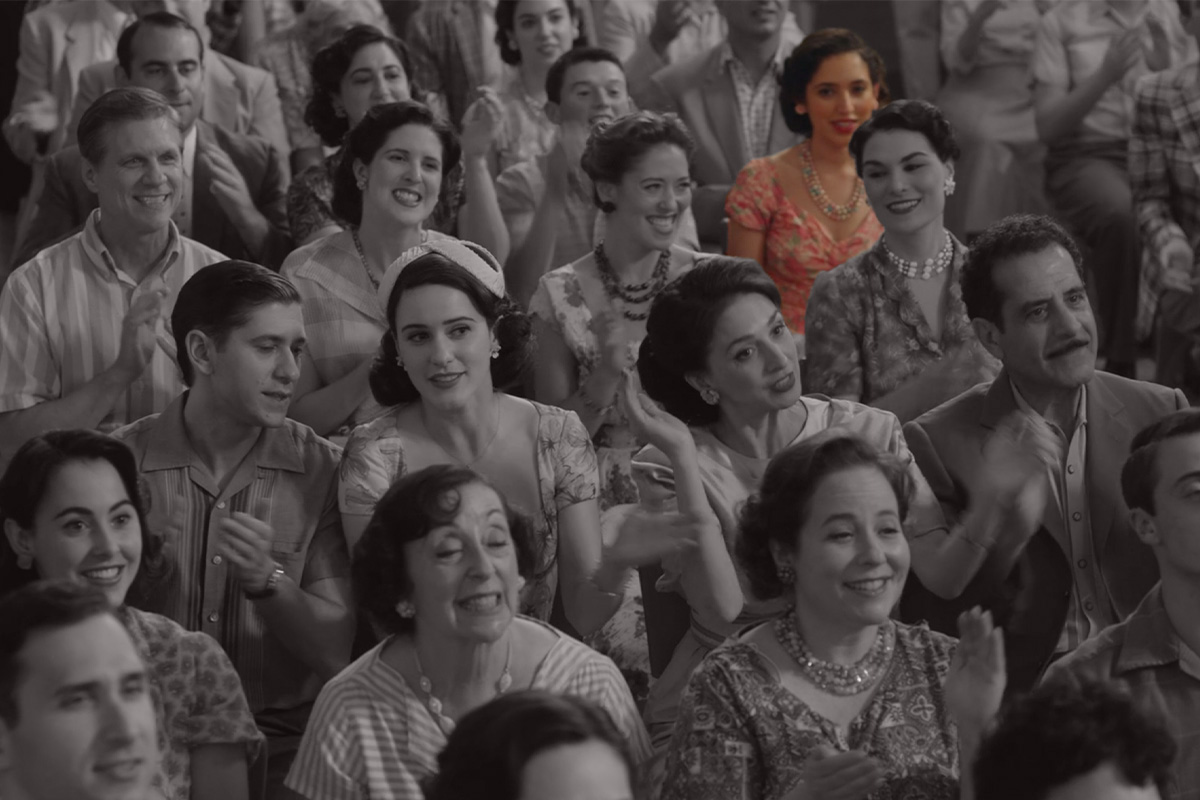This past Friday, “The Marvelous Mrs. Maisel” released the first episodes of its fifth and final season. It is a bittersweet time, as someone who really saw myself in the show.
Literally.
Look close and you might just see me, too: In season two, two seats behind Abe during the introduction to Steiner Resort. In season three you might just see me enjoying a delightful conversation in Rose’s tea room on one of the back tables, or hurrying past Midge in the airport in the season premiere of season five.

I had never worked as an extra before “The Marvelous Mrs. Maisel.” But when I saw the flyer circling online just as I began studying for the New York Bar Exam — a call for “Jewish Resort Guests” — I figured it couldn’t hurt to apply. I gave up on my acting ambitions long ago when I failed to land a part in my middle school play, but this felt like the part I was born for and in a show I enjoyed. When I got the text, with a call date two weeks before the Bar, I figured that this would be a chance to take a quick break from studying, wear a pretty vintage outfit and see the show get made.
It was absolutely those things. I still dream about the pink sundress I got to wear in season two, and the brief moment where Marin Hinkle (Rose) pretended to be in friendly conversation with me on her way to her seat, a blink-and-you-miss-it exchange that actually made it into the final shot. The thumbs up executive producer Dan Palladino gave me as he finished walking through the tea room set is one I won’t forget. But more than anything, I treasure getting to be a tiny Jewish piece of this show.
Discourse may abound about questions of Jewishness and authenticity with regard to the Maisel core cast, but no pronouncement quite captures the level of Jewishness of the background.
“Maisel” holding rooms were frequently some of the most Jewish spaces I’d been in. Being an extra involves a lot of waiting. It forces even stubborn introverts like myself to get chatty with the strangers beside you. On the days I got to be on set, that meant lots of fellow Jews. There were the ones you’d expect, early-career and aspiring actors, but plenty I didn’t. There were the chatty Westchester moms. There were the retirees who did this work weekly and were eager to dish endless gossip about directors and sets. Lunch might mean being in conversation with a Yiddish-language psychologist, or someone convinced that you look just like their grandmother, or someone with whom you might share more than a bit of Jewish geography.
At times it was all a bit like going to High Holiday services, a once annual ritual of getting completely done up, showing up into a majestic space and committing a day to putting away my phone and being entirely present inside of something so recognizably Jewish. The very motions of it took on the quality of a service, all the choreographed standing, sitting, standing and sitting. I’d spend the day thinking about people long past, my grandparents who honeymooned in the Catskills the summer of 1959 and the generations of family members for whom girdles, nylons, gloves and hats were wardrobe fixtures. By the time I’d amble home it all felt worth it, feet blistered and lower back aches aside, because for a brief moment I got to exist inside this almost spiritual space.

“Maisel” got me hooked on extra gigs, and between those I applied often, fitting them in whenever I could. But it quickly became apparent that most shows weren’t “Maisel.” For one, they didn’t come with perfectly curated ‘50s outfits. I also started to notice how my “look” limited what I got offered. I got quick offers for Upper West Side museum patrons, theater-goers and “Tel Aviv Climate Activist,” but little else. The only thing that was at all reliable when I sought out extra gigs was that at least once a season, I could rely on “Maisel” to need someone who looked like me.
Which, to be frank, remains frustrating in ways that have less to do with “Maisel” specifically but the broader reality of working in this space at any level. The typical response to casting authenticity conversations, that “anyone should get to play anyone” or that Jewishness should be excluded from these conversations as it is not a racial identity, neglects the reality of how much who you are and the way you look will inevitably put you in a box. When even those roles go to someone else, the box just gets smaller, the opportunities fewer and further between. I always enjoy stepping onto a set, but each time has reminded me of my own limits as a person in possession of only one face.
So with that, I remain grateful to “The Marvelous Mrs. Maisel.” I will miss being on that set and the Jewish joy that came with it. Of the opportunities I’ve had, none have come close to feeling so right, or so much fun. Chances like that don’t come often, and rarely do they come with such great outfits.



